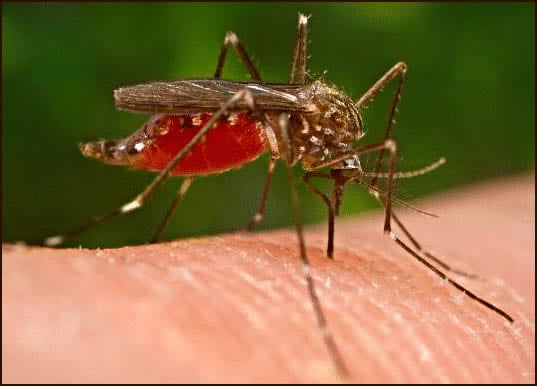Health
Nigeria’s exclusion from malaria vaccine allocation will increase disease burden –Expert

Angela Onwuzoo
A medical researcher at the Nigerian Institute of Medical Research, Yaba, Lagos, Dr. Oluwagbemiga Aina, says Nigeria should strongly embrace other malaria prevention measures to avoid the country’s exclusion from the list of African countries selected to benefit from the malaria rollout impacting negatively on the fight against the killer disease.
The Deputy Director of Research at the Centre for Research in Traditional, Complementary and Alternative Medicine, Biochemistry and Nutrition Department, NIMR, in an exclusive interview with PUNCH Healthwise, said not having the malaria vaccine will increase the malaria burden if Nigeria fails to step up other interventions.
PUNCH Healthwise reports that Nigeria was excluded from the list of African countries to benefit from the 18 million doses of the first-ever RTS,S/AS01 malaria vaccine rollout from 2023 to 2025.
The Director-General of the World Health Organisation, Tedros Ghebreyesus, had revealed that together with Gavi and UNICEF, the Organisation would allocate 18 million doses of the first-ever RTS, S/AS01 malaria vaccine to 12 countries in Africa.
The agencies stated that the countries would receive 18 million doses of the first-ever vaccine against malaria over the next two years.
The initial 18 million dose allocation they noted will enable nine more African countries to introduce the vaccine into their routine immunisation programmes for the first time.
The countries include Benin, Burkina Faso, Burundi, Cameroon, the Democratic Republic of the Congo, Liberia, Niger, Sierra Leone and Uganda.
Meanwhile, the malaria vaccine has been administered to more than 1.6 million children in Ghana, Kenya and Malawi since 2019, and had shown to be safe and effective.
PUNCH Healthwise gathered that Nigeria’s refusal to meet the deadline for the second window application in January disqualified it from getting an allocation.
It was learnt that allocations were determined through the application of the principles outlined in the framework for allocation of limited malaria vaccine supply, which prioritises the allocation of doses to areas of highest need, where the risk of malaria and death among children are highest.
Speaking with our correspondent, Dr. Aina said though Nigeria is a malaria endemic country, the country could also, in the absence of the vaccine reduce its high malaria burden by increasing testing, treating and tracking.
He said, “The impact is that if we don’t have the vaccine, the malaria burden will continue to increase. But we have other interventions like use of insecticide-treated nets.
“We are in Osun State now and we have started distributing nets to communities. There is provision of intermittent preventive treatment of malaria in pregnancy.
“But the fact that we don’t have the vaccine now doesn’t mean we don’t have other interventions to tackle malaria.
“However, once they bring the vaccine, it will help to reduce the risk of having malaria. We have to intensify other interventions. The World Health Organisation says we should test, treat and track but we are not doing that.
“Most of the time, we don’t track. It is important for people to do malaria test and be sure they have malaria before going for treatment “
Malaria is a disease caused by a plasmodium parasite, transmitted by the bite of infected female mosquitoes of the genus Anopheles, with varying severity based on the species of the plasmodium.
The symptoms of malaria are chills, fever, and sweating, usually occurring a few weeks after being bitten and treatment includes antimalarial drugs.
The researcher urged Nigerians to treat malaria with standard and approved medications.
“A lot of people assume that they have malaria when they don’t have it. There are a lot of illnesses that mimic malaria symptoms. If we have symptoms of malaria, we must do a test and do it in a recognised facility,” Dr. Aina advised.
The WHO Director-General, Dr Tedros Ghebreyesus said malaria remained one of Africa’s deadliest diseases, killing nearly half a million children under the age of five every year, and Africa accounted for approximately 96 per cent of global malaria deaths in 2021.
“With the climate crisis changing weather patterns, mosquitoes that carry these diseases are increasing in density and spreading further afield,” Ghebreyesus said, speaking during his regular media briefing from Geneva.
The 2020 World Malaria Report by the WHO indicated that Nigeria had the highest number of global malaria cases (27 per cent of global malaria cases) in 2019 and accounted for the highest number of deaths (23 per cent of global malaria deaths).
Copyright PUNCH
All rights reserved. This material, and other digital content on this website, may not be reproduced, published, broadcast, rewritten or redistributed in whole or in part without prior express written permission from PUNCH.
Contact: [email protected]
Disclaimer: No copyright infringement intended. All rights and credits reserved to respective owner(s).












